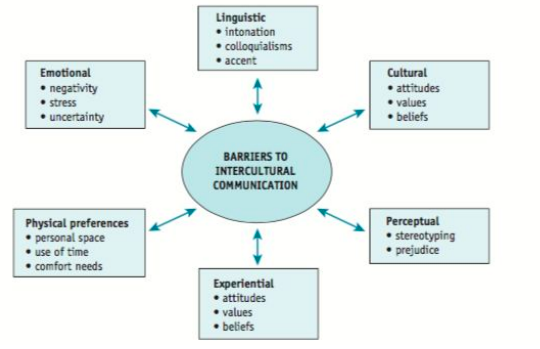Every type of team will encounter hiccups in the workplace from time to time. Whether these disagreements are about team projects or current affairs, the root of the issue can often be found in cultural differences. This is especially true as the world becomes increasingly globalized and teams are made up of members with various life experiences.
As a leader and mentor, how can you effectively manage intercultural communication to avoid and work through conflict in the remote workplace? Every company should have a strategy for dealing with this issue before it arises to build a more robust, healthier environment.
Why is there a need for better intercultural communication?
What is it that makes ensuring your office is prepared for effective intercultural communication while working remotely?
The simple fact of the matter is the remote work revolution was already well underway before the COVID-19 pandemic. After the pandemic’s effects hit the global workforce, there’s no doubt that maintaining strong remote workplaces will continue to be essential.
In both the US and the UK, more businesses and employees are going fully remote. The reasons for this vary from saving money to reducing environmental impact.
More than 53% of UK workers hope to work in a hybrid model, splitting time between home and the office after the pandemic. More than 9,000 workers in six countries were interviewed, and it was found that more than 70% of responders would also prefer hybrid working. This trend is being seen across the world, and more than 92% of surveyed workers in the US expect to work from home at least one day a week in the future, despite only a third of US remote workers having a dedicated work space at home.
As more companies commit to hybrid or fully remote workplaces, the diversity seen in those spaces will increase exponentially. Bringing in new opinions and workers from different areas will become simpler. This process will increase the need for effective intercultural communication in a remote workplace.
What can you do to ensure your company implements the policies to make this possible?

Barriers for effective intercultural communication
Tip 1: Set up guidelines for emails and communication
When working with global teams and using email or other channels for communication, you want to be sure that all team members receive the same amount of information from such communication.
Having a simple set of guidelines for all teams to follow can help to ensure that intercultural communication is clear on all sides:
- Consider what cultural nuances may affect communications (i.e., slang used by those in the UK and US may differ, even if both teams use English)
- Remind employees to keep language simple and straightforward so that all teams can understand it.
- Ask employees to limit their use of metaphors or acronyms that may be confusing; if used, explain their meaning as well.
- Set up communication hours to match time zones, when necessary, on communication channels.
- Organize your communication channels to make starting interactions as well as asking questions more manageable.
Some of these things may feel intuitive to you if you are accustomed to working with international terms. However, not everyone has experience in group communication outside of their own cultural sphere.
By giving simple guidelines and ideas, you can help everyone feel more comfortable connecting with others in the company.
Tip 2: Adapt communication style
When working with a highly diverse group, you may quickly discover that not all team members respond to assignments, questions, or communication in the same way. Cultural differences in how we think, learn, and interact can cause us to interpret information differently.
However, it is crucial to ensure that all team members are getting to the same bottom line, regardless of their cultural origins.
One great way to do this is to begin asking open questions to check for understanding. An open question, also known as an open-ended question, is when there is no simple “yes” or “no” answer to a question. This type of questioning requires the responder to provide context and detail.
How is this helpful for intercultural communication?
In a non-diverse workplace, simply asking “Do you understand the task?” might be enough; the team can simply say “yes” or “no.” In a more diverse remote workplace, however, this type of questioning leaves a lot of room for interpretation. Adapting your communication style can ensure that things are being understood, interpreted, and implemented equally between all team members.
Tip 3: Train your team leads
For your teams to have effective intercultural communication, you need to be sure that your team leads are trained in how to do so. Multicultural teams are more complex to handle than single-culture teams. When the team leaders have the right knowledge, they can set the stage for more successful communication.
In particular, training leads ensures that they understand how to set up successful work guidelines, expectations, and communication at the team level. This is key for a successful remote workplace.
Tip 4: Plan to address specific issues
It can be hard to prepare for all possible issues regarding multicultural communication in a remote workplace. Depending on the number of employees, the industry your work falls into, and the types of teams you have, there are many fronts to cover.
However, there is one thing you can specifically prepare for: you can expect to encounter difficulties in intercultural communication. No matter what you do, there will be times when communication breaks down because of cultural differences.
When this inevitably happens, it is vital to be prepared to address and rectify the situation as quickly and thoroughly as possible. One possible way could be learning languages online through various apps such as interactive language learning games.
There are a few common causes of intercultural communication issues:
- Multicultural employees may be hesitant to speak honestly about their opinion or how they are feeling.
- Some members of multicultural teams may be acting on negative cultural stereotypes, causing issues with other team members.
- Language differences may cause misunderstandings and misinterpretations.
- Standards of professional etiquette can vary widely between cultures; this can lead to disagreements.
- Working expectations may differ between cultures, leading to clashes between team members.
Conclusion
When analyzing a team, team leaders should understand the possibility of these four root causes for nearly any intercultural issue. By figuring out the root problem, it will become easier to talk about these sensitive issues with involved employees and sort out a solution.
Do you have the right tools and ideologies in place? Preparing solutions using these tips in advance is a sure way to set your business up for success when working through intercultural communication problems. Take time to analyze your business to see if you are prepared for potential problems.
Doing this allows you to get organized with effective solutions to workplace communication issues before they even happen.











Add comment